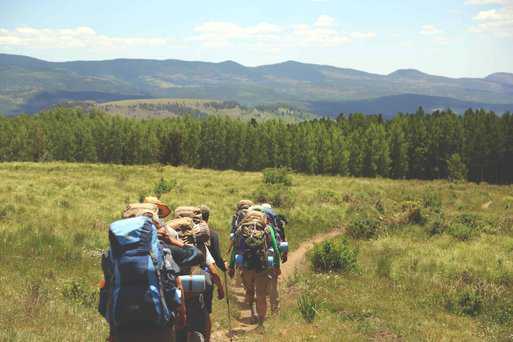Outdoor recreation is a great way to escape from the hustle and bustle of everyday life and connect with nature. However, solo recreationalists should take extra precautions to ensure their safety while enjoying the outdoors. In this blog post, we will discuss some important safety tips for those who love to engage in outdoor activities alone.
Plan Your Route:
Planning your route is an essential step before you embark on your outdoor adventure. Make sure to research the area, study maps, and get familiar with the terrain. Choose a route that is appropriate for your skill level, and take into consideration any potential hazards such as steep slopes, rocky terrain, and unstable ground. Additionally, make sure to inform someone of your plans, including your starting and ending point, and your expected time of arrival.
Check the Weather:
Checking the weather forecast is another critical step in ensuring your safety while participating in outdoor activities. The weather can quickly change, and you do not want to be caught off guard. If the weather conditions are unfavorable, consider postponing your trip or choosing an alternative route. Additionally, ensure you dress appropriately for the weather conditions, and bring extra layers to protect against unexpected drops in temperature.
Bring Enough Supplies:
When engaging in outdoor activities, it is important to pack enough supplies to last you the entire trip. Some essential items to bring include a map, a compass, a first aid kit, food, water, a flashlight, and a means to start a fire. Make sure to pack extra supplies in case your trip takes longer than expected, or you encounter unexpected weather conditions. Additionally, make sure to pack appropriate clothing and gear: including waterproof jackets, sturdy boots, and warm clothing for cold weather conditions.
Learn Basic First Aid:
Knowing basic first aid can be a lifesaver in emergency situations. Consider taking a first aid course to learn how to deal with cuts, burns, and other common injuries that may occur while participating in outdoor activities. Additionally, make sure to pack a comprehensive first aid kit that includes bandages, gauze, antiseptic wipes, and any necessary medications you may need.
Bring a Communication Device:
Carrying a communication device is essential when engaging in outdoor activities alone. A mobile phone, two-way radio, or GPS device can help you stay connected with the outside world and call for help in case of an emergency. Additionally, make sure your device is fully charged and kept in a waterproof bag to protect it from the elements.
Tell Someone Your Plans:
Before embarking on your outdoor adventure, make sure to inform someone of your plans. This includes your starting and ending points, your expected time of arrival, and the route you plan to take. In the event that you do not return at the designated time, this person will be able to notify the appropriate authorities and initiate a search and rescue operation.
Be Aware of Your Surroundings:
Being aware of your surroundings is critical when engaging in outdoor activities. Stay alert and observant of potential hazards such as wildlife, steep cliffs, and unstable ground. Additionally, make sure to pay attention to changes in the weather and the terrain, and adjust your plans accordingly.
Practice Leave No Trace:
Leave No Trace is a set of principles that promote responsible outdoor recreation. This includes respecting wildlife, leaving the environment as you found it, and disposing of waste appropriately. Make sure to pack out all of your trash and respect any rules and regulations in the area you are visiting.
Carry Navigation Tools:
Carrying navigation tools is essential when participating in outdoor activities alone. A compass and a map can help you stay on course and find your way back in case you get lost. Additionally, a GPS device can help you track your location and find your way back to civilization.
Know Your Limits:
Knowing your physical limits is crucial when engaging in outdoor activities alone. Choose activities that are appropriate for your skill level and fitness level. It is important to push yourself, but not to the point of exhaustion or injury. Additionally, make sure to rest when needed and stay hydrated to avoid dehydration and heat exhaustion.
Learn Self-Rescue Techniques:
Learning self-rescue techniques can be invaluable in emergency situations. This includes learning how to rappel, tie knots, and perform basic rock climbing techniques. Consider taking a course to learn these skills or practicing with an experienced friend.
Be Prepared for Emergencies:
Being prepared for emergencies can make all the difference when participating in outdoor activities alone. In addition to carrying a first aid kit and communication device, make sure to pack an emergency shelter, such as a tarp or bivy sack, to protect yourself from the elements. Additionally, consider bringing a whistle, signaling mirror, or flares to alert rescuers to your location.
Avoid Solo Activities in Dangerous Conditions:
Avoid engaging in solo outdoor activities in dangerous conditions, such as during extreme weather events or in remote areas with limited access to medical facilities. It is important to prioritize your safety and take necessary precautions to avoid putting yourself in danger.
Outdoor recreation can be a rewarding and enjoyable experience for solo recreationalists, but it is important to take necessary precautions to ensure your safety. By planning your route, checking the weather, bringing enough supplies, learning basic first aid, carrying a communication device, telling someone your plans, being aware of your surroundings, practicing Leave No Trace, carrying navigation tools, knowing your limits, learning self-rescue techniques, being prepared for emergencies, and avoiding solo activities in dangerous conditions, you can enjoy the great outdoors with confidence and peace of mind. Remember, safety should always be your top priority when participating in outdoor activities alone.

